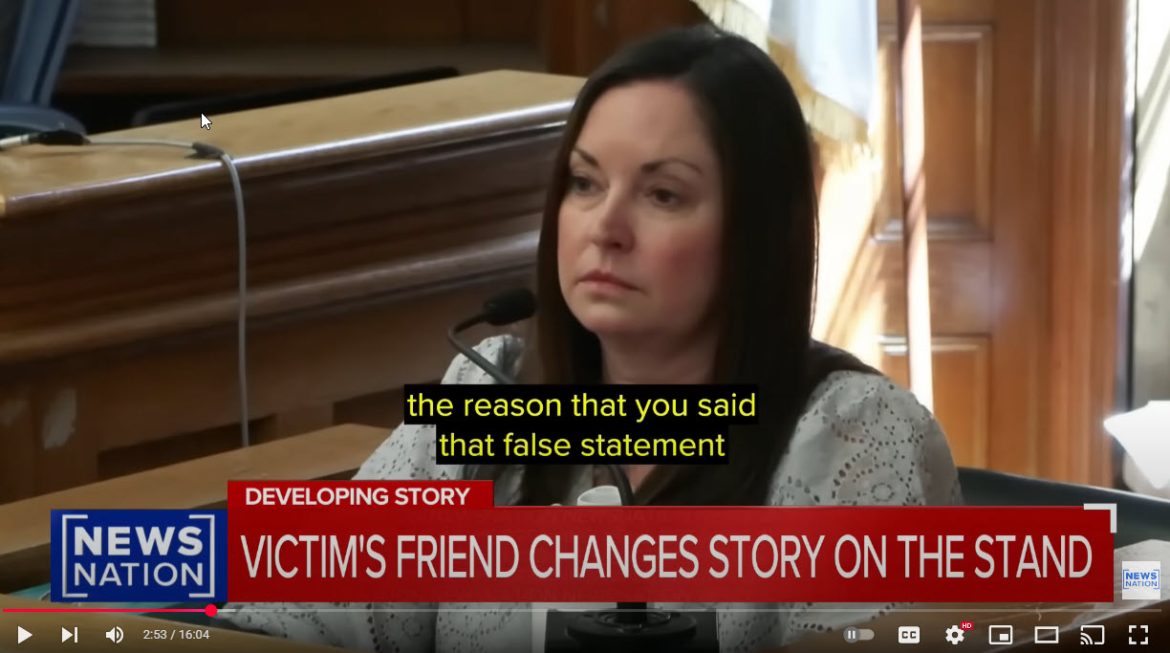The high-profile murder retrial of Karen Read resumes in a Massachusetts courtroom with a dramatic turn as a central prosecution witness retracts previous testimony that had been considered pivotal in linking Read to the 2022 death of Boston police officer John O’Keefe. The latest developments mark a potential shift in momentum for the defense, who argue that Read is the victim of a wrongful prosecution and widespread cover-up.
Read is accused of killing O’Keefe, her boyfriend at the time, by backing her SUV into him during a snowstorm after a night of heavy drinking with friends in the Boston suburb of Canton. Prosecutors allege that she left O’Keefe to die in the snow outside a fellow officer’s home, where his body was later discovered with signs of exposure and head trauma.
In a major blow to the prosecution, witness Kerry Roberts, who previously testified that she heard Read mention the term “hypothermia” during a phone call on the morning O’Keefe was found, reverses her statement during cross-examination. Roberts now says she is no longer confident that Read used that word, casting doubt on a key element of the prosecution’s timeline and theory of intent.
Legal analysts say Roberts’ retraction is a substantial win for the defense team, which has long argued that Read’s alleged use of the word “hypothermia” was mischaracterized and improperly used to suggest consciousness of guilt. The defense has consistently maintained that Read is being framed and that there are inconsistencies in the police investigation, particularly surrounding the timing of O’Keefe’s death and the condition of his body.
The retrial follows a dramatic first trial that ended in a hung jury, with jurors reportedly split over the credibility of key witnesses and the physical evidence. In the aftermath of the mistrial, one former juror publicly stated that some jurors believed there was insufficient evidence to convict Read beyond a reasonable doubt, further fueling public scrutiny of the case.
Court proceedings this week are tense, with sharp exchanges between Read’s legal team and prosecution witnesses. At one point, defense attorneys clash with another witness over discrepancies in phone records and location data, suggesting that O’Keefe may have never re-entered Read’s SUV after the couple left a local bar the night he died.
The case has drawn widespread media attention, both due to the unusual nature of the charges and the tight-knit law enforcement community in which the events unfolded. Supporters of Read, including some legal experts and community advocates, claim the investigation was tainted by conflicts of interest and question the integrity of the crime scene processing.
Prosecutors continue to argue that Read was angry and intoxicated, and that she intentionally struck O’Keefe with her vehicle during an argument. They cite vehicle damage and cell phone data as part of their case, though the defense contends that alternative suspects and explanations have been overlooked.
Judge Beverly Cannone has instructed jurors to disregard previous media coverage and focus solely on the facts presented in court. Testimony is expected to continue for several more weeks as both sides present forensic evidence, digital data, and expert analysis.
With the retraction of key testimony now on the record, legal observers say the case is once again wide open, with reasonable doubt continuing to cloud the prosecution’s theory. Whether the retrial leads to a definitive verdict or yet another mistrial remains uncertain, but the stakes remain high for both Karen Read and the legacy of Officer John O’Keefe.



